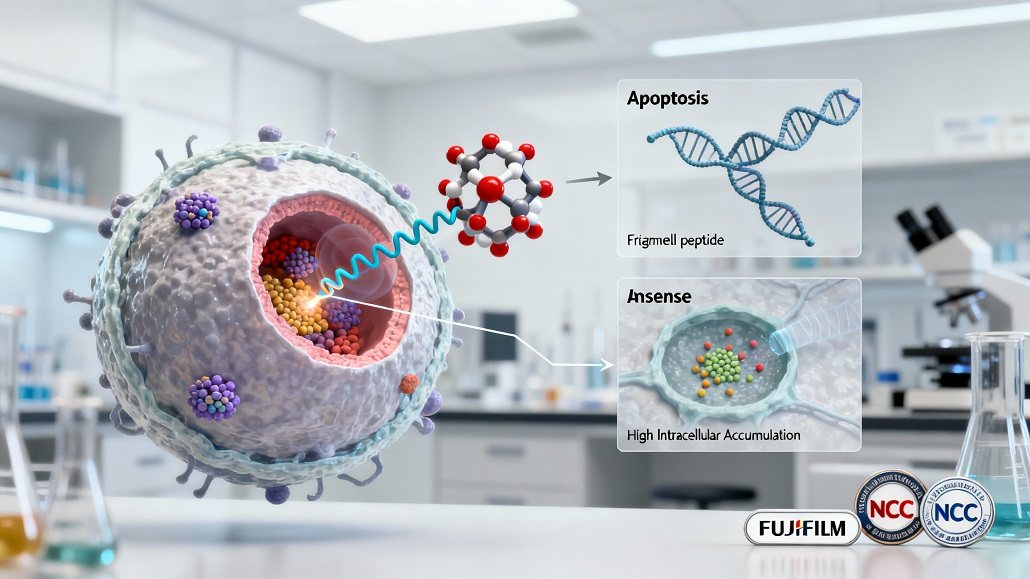FUJIFILM Corporation today announced that it has signed a joint research agreement with the National Cancer Center Japan, a Tokyo-based national institution recognized for its leadership in cancer care and research. Under this agreement, Fujifilm and the National Cancer Center Japan will collaborate on the development of novel cancer treatment technologies. The research will focus on evaluating the efficacy and targeted delivery of therapeutic agents using Fujifilm’s proprietary cyclic peptides containing unnatural amino acids and antisense nucleic acids designed by the National Cancer Center Research Institute to selectively induce apoptosis in cancer cells.
In cancer treatment, a persistent challenge is that while existing therapies may initially show efficacy, cancer cells frequently acquire drug resistance through mutation, leading to a gradual decline in therapeutic effectiveness. This has driven increasing interest in the development of novel therapeutics with mechanisms of action distinct from conventional approaches. Antisense nucleic acids, which bind to intracellular RNA and modulate the production of specific proteins, offer a promising new mechanism for cancer therapy. In addition, peptides are actively being developed for practical applications as ligands that facilitate targeted delivery and accumulation of nucleic acid-based drugs and other therapeutics. Peptides combine the advantages of small-molecule drugs—such as superior tissue permeability—with the high target specificity and binding strength of antibody drugs, resulting in fewer side effects.
Fujifilm will develop peptide–nucleic acid conjugate by linking its proprietary cyclic peptides with antisense nucleic acids designed by the National Cancer Center Research Institute. These conjugates will be evaluated for their ability to selectively induce apoptosis in cancer cells as well as their efficiency in delivery and accumulation in target tissues. By leveraging advanced molecular design technologies and extensive research expertise, Fujifilm aims to contribute to the development of innovative cancer therapies with enhanced precision and efficacy.
The National Cancer Center Research Institute, drawing on its extensive experience in cancer profiling and drug development, has demonstrated the therapeutic potential of antisense nucleic acids through novel mechanisms of action, particularly in overcoming drug resistance.
Fujifilm possesses proprietary technologies including our advanced mRNA display platform and method to screen of peptide candidates, as well as unique structural optimization methods. These capabilities enable the creation of cyclic peptides with strong binding affinity to targets highly expressed in cancer cells. In July 2025, Fujifilm successfully developed peptide–nucleic acid conjugate by chemically linking its peptides to nucleic acids. These compounds demonstrated high accumulation in specific cancer cells and gene knockdown effects by suppressing disease-causing gene activity.
Fujifilm’s strong research foundation and proprietary cutting-edge technologies are at the core of our innovative and drug discovery support CRO services, fulfilling our commitment to support the continued advancement of the pharmaceutical industry.


















